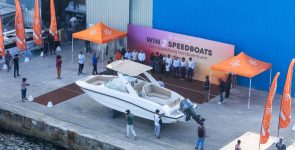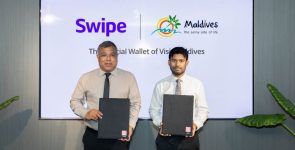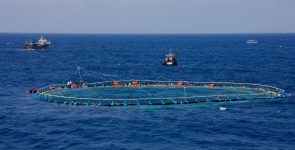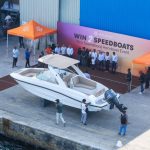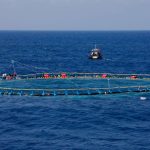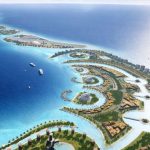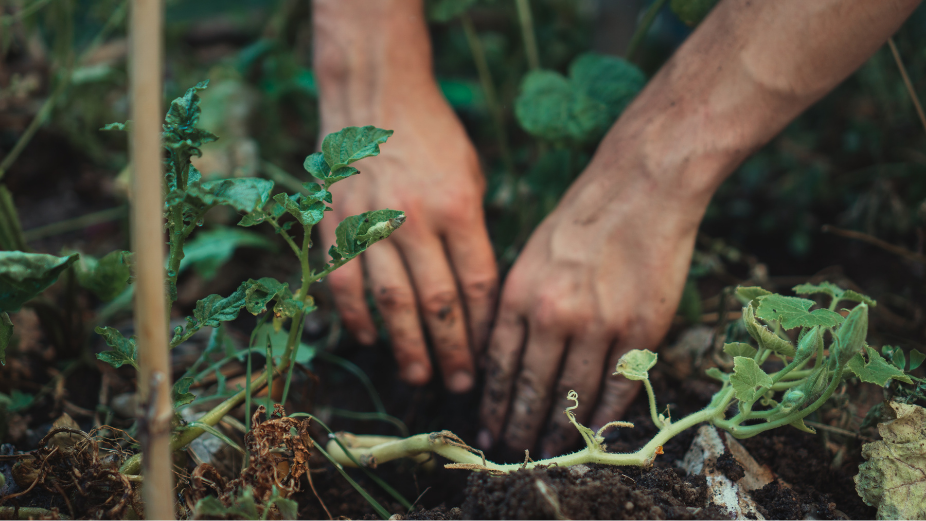
From zero-waste kitchens and recycling marine plastic to offering free dive lessons to children to nurture next-generation respect for the environment, this new luxury resort is driven by its commitment to perpetuality.
Opening in Q2 2021, Patina Maldives, Fari Islands, will advance the well-established trend of purposeful travel with a hands-on, data-led approach to positively impacting people and place, reflecting a brand-wide commitment to the pursuit of perpetuality. From addressing waste in its supply chain and boosting the health of its guests, neighbours and local environment to ensuring energy-positive operations – including becoming the first resort in the Maldives with 100 percent solar-powered kids’ club,
recreation and dive centres – Patina Maldives is dedicated to making a lasting difference in everything it does.
Patina for Perpetuality
Patina Hotels & Resorts’ interpretation of perpetuality is rooted in its belief in effecting and empowering lasting change – starting with nurturing sustainable values in tomorrow’s travellers. Embodying this future-thinking approach, Patina Maldives’ pioneering kids centre, Footprints, is a place of discovery and inspiration, engaging programming and exceptional facilities – all powered entirely by Swimsol, a company specialising in marine offshore solar panels and also the leading solar panel provider in the Maldives.
At Footprints’ Fab Lab, kids can turn recycled ocean plastic into models using 3D printing and laser cutting technology – echoing the energy-saving prefabrication techniques used in the modular construction of the resort’s villas; while in its culinary studio, hungry young minds can discover the benefits of local, organic sourcing and enjoy the best of sustainable plant-based cuisine. Shark spotters and budding marine biologists can sign up for free diving lessons, while free PADI dive certifications are also offered for local Maldivian children – helping to raise next-generation awareness of the local ocean environment.
Reflecting a firm belief in seeding opportunity and empowerment through the creation of a healthy, balanced, economic ecosystem, 1 percent of Patina Maldives’ gross operating profits will be used to fund a range of charitable initiatives, focusing on supporting Maldivian women and children, and those local communities most heavily impacted by global climate change.
Oceans First
Patina Maldives, Fari Islands has set ambitious goals to tackle marine plastic pollution and implement a comprehensive coral propagation project, helping establish the Fari Islands as a new standard-bearer for marine conservation in the Maldives. In addition to these longer-term projects, Halevai Founder and longtime Parley for the Oceans crew member, Frank Heidinger, is collaborating with Fari Islands to bring a disruptive creativity to the environmental awareness of guest programming within the archipelago. For example, Patina Maldives will lead regular guest and team beach clean-ups both on-resort and on neighbouring local islands; for every stay, 10kgs of marine plastic will be collected, cleaned and repurposed into Parley ocean plastic material.
The resort has also formed a strategic alliance with the Olive Ridley Project, a charitable organisation that provides rehabilitation to injured turtles from the Indian Ocean. Sea turtles are vulnerable to ghost nets and have a habit of consuming plastic waste, mistaking it for sustenance and leading to general ill-health and malnutrition. In addition to a donation effort earlier in the year, guests will also be encouraged to adopt a turtle during their stay at Patina Maldives, and dive deeper into understanding the threats to these peaceful ocean dwellers.
Purveyors of Conscious Cuisine
The culinary concept on the island is based on the nose-to-tail, root-to-leaf principle, not only minimising waste, but at the same time advocating the benefits of a plant-based diet. Roots, the signature dining experience at Patina Maldives, Fari Islands, is the manifestation of the latter. It is a conscious and conscientious lifestyle and plant-based concept, created responsibly for curious foodies seeking nutritional food and drink without compromising flavour and quality, all in an environment that is ethically
produced.
The resort has also built an on-island organic permaculture garden where fresh produce will be cultivated for various departments, reducing greenhouse gas emissions during the supply chain process; guests are encouraged to explore and forage the variety of vegetables and herbs available within the garden at their leisure. All off-island ingredients will be sustainability sourced and accredited by EarthCheck or the International Pole and Line Foundation, with local provenance a clear priority.
All drinking water on the island will also be produced and bottled in-house with on-island water bottling plant, Nordaq. In addition, every cocktail and spirit served at Patina Maldives, including the Fari Beach Club, will eliminate 30 grams of carbon emissions in comparison to drinks crafted at beverage outlets with conventional labels. This is thanks to the world’s first low carbon, low waste spirits distribution technology.
Regenerative, Renewable, Reusable
As part of Patina Maldives’ commitment towards reliance on renewable energy, plans are in place to expand its Swimsol solar plant to provide 50 percent of the resort’s energy needs by 2030. The resort’s energy-positive ethos is further demonstrated by participation in global carbon sequester programmes that neutralise its carbon output. Future plans include investing in long-term Blue carbon partnerships and a solar-powered transportation fleet.
During construction of the Fari Islands, energy consumption was reduced by an estimated 12 percent through sustainable practices such as the use of prefabricated materials, which significantly reduced waste and carbon emissions versus conventional construction methods. Locally sourced, biodegradable and reusable materials were used wherever possible; all timber is FSC-certified and sourced from 100 percent transparent supply chains. All 1,600 workers were provided with reusable water bottles to ensure no plastic bottles were used on site from the outset.




